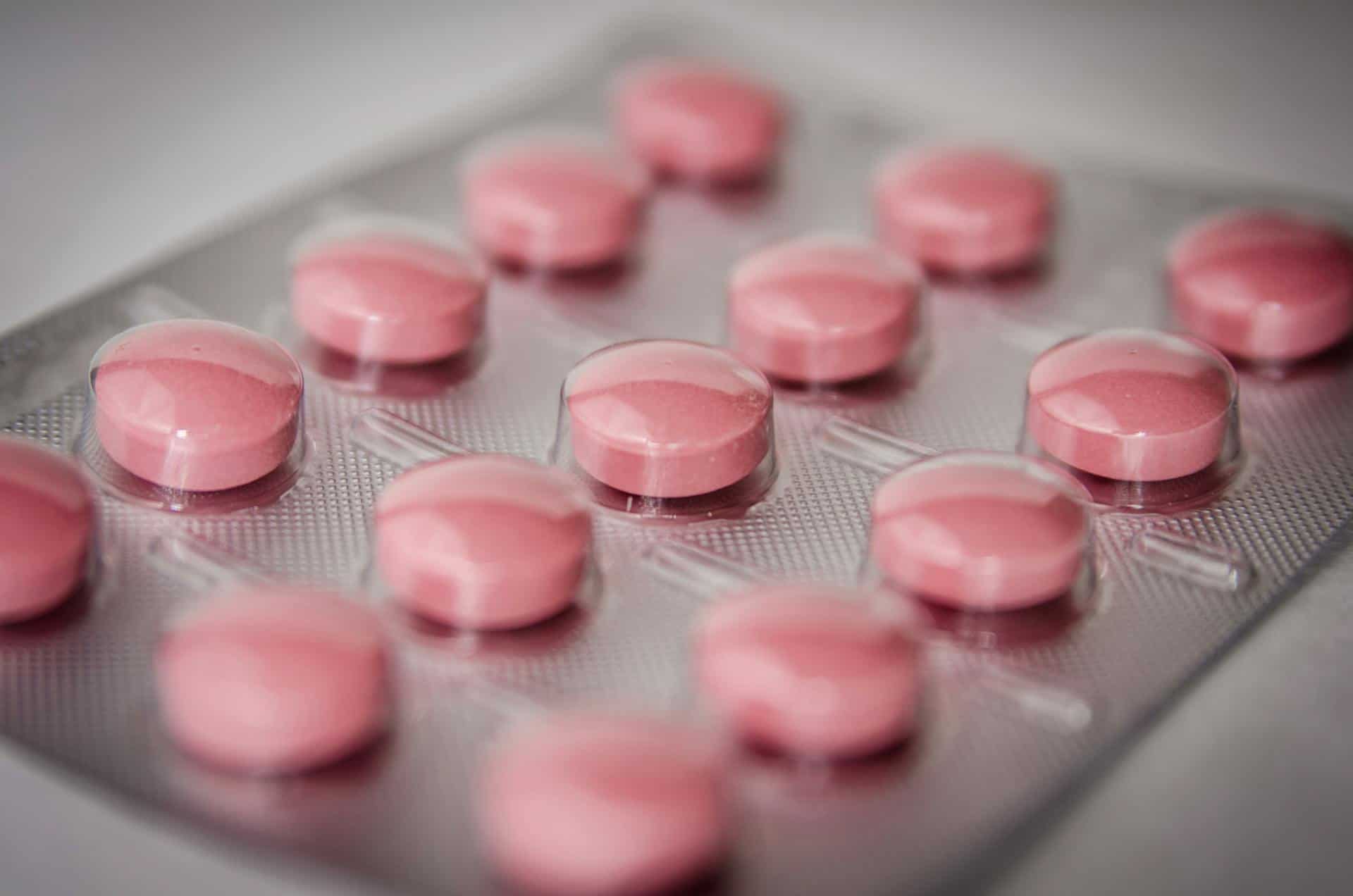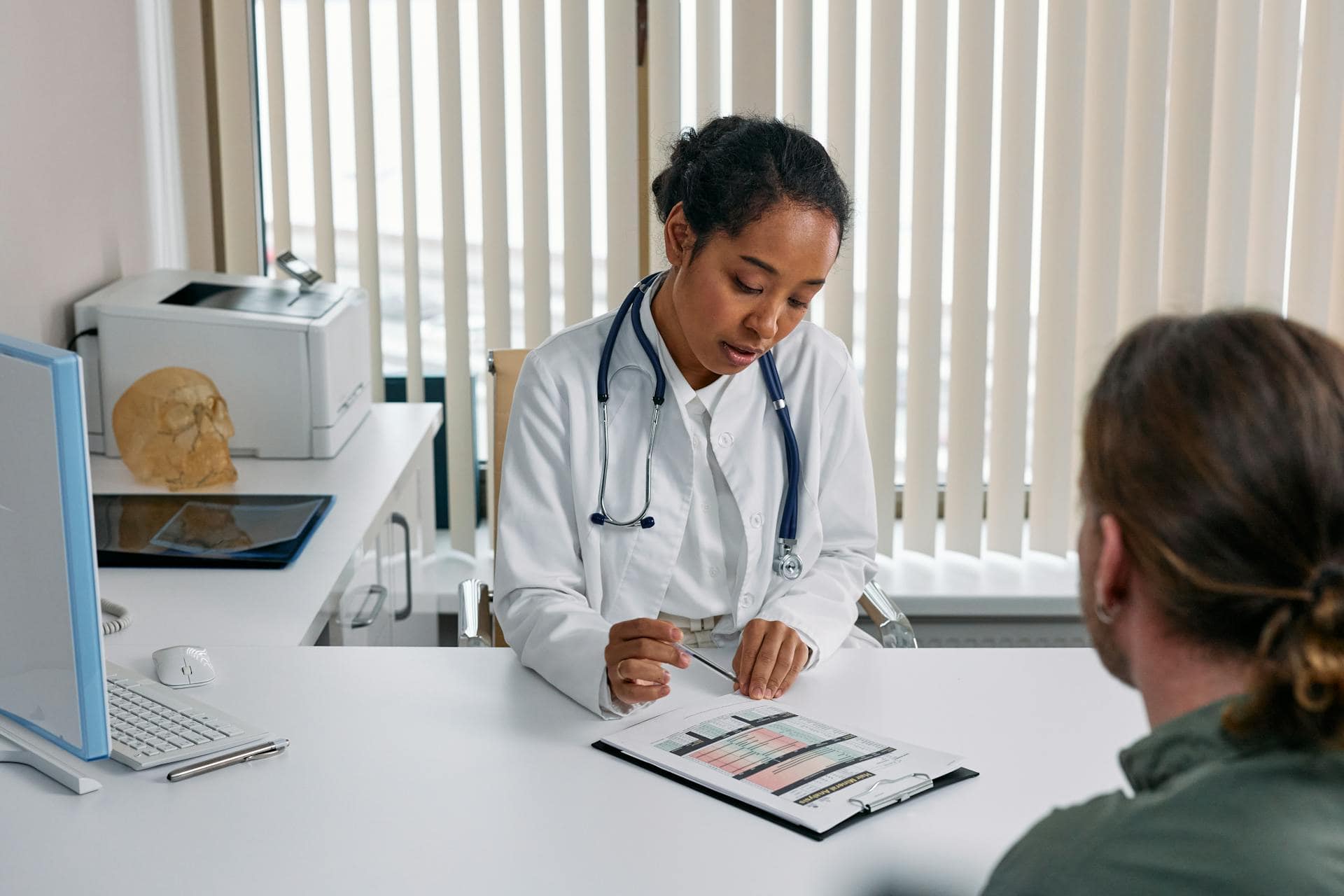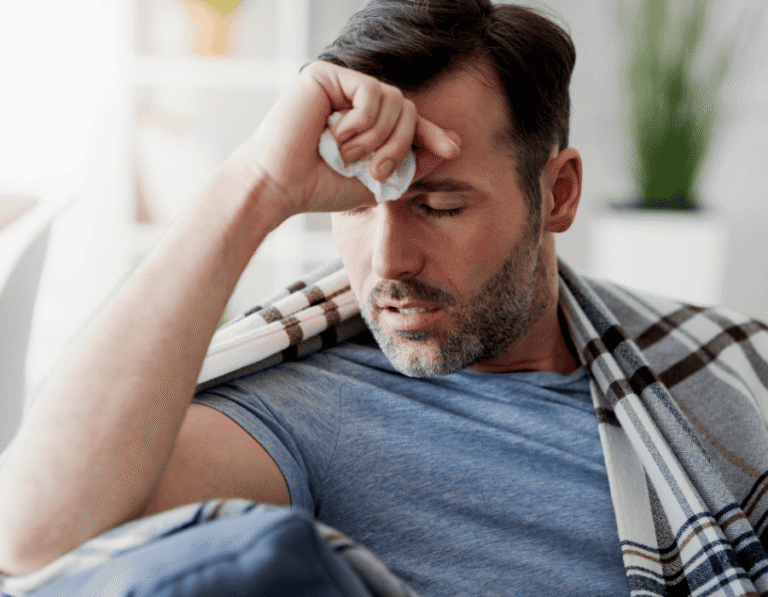Antibiotics are some of the most powerful medicines we have — they fight infections and save millions of lives every year. But along with their benefits, antibiotics can sometimes leave people wondering about side effects. One of the most common questions is: “Can antibiotics make you tired?”
The short answer: sometimes, yes. But the full story is a bit more complicated. Fatigue can happen for different reasons — sometimes from the medicine itself, sometimes from the infection your body is fighting, and sometimes from other factors altogether.
Here’s what you’ll learn in this guide:
- Yes, antibiotics can sometimes make you tired — but it’s not very common.
- The infection itself can cause fatigue, even more often than the medicine.
- Tiredness usually doesn’t last long, and most people feel better once the course is over.
- Red flags matter — if fatigue is extreme or lingers, it’s worth checking with a doctor.
Different Types of Antibiotics, Explained

Before we dig into tiredness, it helps to understand that not all antibiotics are the same. There are different kinds, and the type can influence side effects (including how likely fatigue might be).
Here are the basics:
- Broad-spectrum vs. Narrow-spectrum: Broad-spectrum antibiotics fight many different kinds of bacteria at once, while narrow-spectrum antibiotics are designed to target only a specific group. According to LibreTexts Microbiology, broad-spectrum antibiotics are more likely to disrupt your “good” bacteria too, which sometimes leads to side effects like digestive upset or fatigue.
- Bactericidal vs. Bacteriostatic: Some antibiotics directly kill bacteria (bactericidal), while others simply stop bacteria from multiplying so your immune system can handle the rest (bacteriostatic). As Study.com explains, bacteriostatic drugs may result in a slower recovery process, which could leave some people feeling low on energy.
Examples and Why It Matters
- Broad-spectrum drugs such as amoxicillin or ciprofloxacin are very effective, but because they attack a wide range of bacteria, they can also affect your gut microbiome. This disruption may contribute to side effects like tiredness. According to Healthline, fatigue has been reported with some commonly used antibiotics, though it remains a relatively rare side effect.
- Narrow-spectrum drugs like Penicillin G are more precise, which often means fewer broad side effects. Still, as Children’s Hospital of Philadelphia notes, narrow-spectrum antibiotics are only useful when doctors know exactly which bacteria they’re treating — so they’re not always an option.
Can Antibiotics Make You Tired?
Yes — they can, but it’s not as straightforward as it sounds. Most people won’t feel major fatigue just from antibiotics, and often what feels like tiredness has more to do with the infection or other factors. Here’s what research and expert resources say:
- According to Healthline, fatigue is not a common side effect of antibiotics, but some people using amoxicillin, azithromycin, or ciprofloxacin have reported feeling unusually tired.
- A study in Verywell Health notes that while antibiotics usually don’t list tiredness as a frequent side effect, weaker reports of sleepiness or exhaustion do show up in medical trials — though they tend to be rare.
- Medical News Today confirms that tiredness and fatigue can sometimes happen during antibiotic treatment. They emphasize that in most cases, the infection itself is likely the main driver of fatigue rather than the antibiotic.
- The European Journal of Applied Physiology found that short-term antibiotic treatments (like with ampicillin or trimethoprim/sulfamethoxazole) in healthy individuals did not produce significantly more subjective fatigue than placebo. That suggests that for many people, tiredness may not be a direct effect of the drug.
How Common Is Tiredness With Antibiotics?

Feeling tired while taking antibiotics does get reported — but it’s not super common. Most antibiotics do not list tiredness as a regular side effect, though some people using drugs like amoxicillin, azithromycin, or ciprofloxacin have described feeling more fatigued than usual.
Some studies compared healthy men on antibiotics (tetracycline, ampicillin, trimethoprim/sulfamethoxazole) vs. placebo, and found no significant difference in subjective tiredness between the groups. That suggests many reported tiredness cases are mild or may come from the illness itself.
In short: fatigue is possible with antibiotics, but it’s usually rare or mild.
Why Does Tiredness Happen?
Even though tiredness isn’t one of the most common side effects of antibiotics, it does happen. And usually, there’s more than one reason. Here are some of the main culprits:
- Your immune system is busy: Fighting off an infection uses up a lot of energy. Your body diverts resources toward healing, which can leave you feeling drained.
- Changes in gut bacteria: Antibiotics don’t just kill the “bad” bacteria making you sick — they also disrupt the helpful bacteria in your gut. This can affect digestion, nutrient absorption, and overall energy levels.
- Medication-specific side effects: Some antibiotics are more likely than others to cause mild tiredness or drowsiness. It’s not common, but for some people, it can be noticeable.
- Symptoms of the infection itself: Fatigue often comes from the illness you’re fighting rather than the medicine. Fever, inflammation, pain, or poor sleep during recovery can all leave you exhausted.
How Long Will Fatigue Last?
Here’s what the evidence and experts suggest about how long tiredness sticks around when it’s related to antibiotics:
- For many people, fatigue is temporary — often improving either during the course of antibiotics or shortly after finishing them. Rest, hydration, and supportive habits usually help speed up recovery.
- When the infection itself is severe (fever, inflammation, body aches), tiredness can last longer because the body is still healing even after antibiotics finish.
- Some individual factors influence recovery time: age, overall health, how long the antibiotic course was, dosage, and whether other conditions are present.
- If you still feel significantly tired more than 1-2 weeks after finishing the antibiotics — especially if the fatigue is getting worse — that’s a good reason to check in with a healthcare professional.
When Should You Contact a Doctor? (Red Flags)

Most of the time, tiredness from antibiotics is mild and goes away once you finish the course or start to feel better from your infection. But there are times when it’s important to check in with a healthcare professional. Think of these as “red flags” that shouldn’t be ignored:
- Extreme fatigue that disrupts daily life: If you’re so tired that you can’t get out of bed, concentrate, or manage normal routines, it’s worth talking to a doctor.
- Sudden or severe weakness: Feeling like your legs won’t hold you up, or experiencing muscle weakness, isn’t a normal side effect.
- Dizziness, fainting, or confusion: These symptoms could suggest more than just tiredness and need medical attention.
- Breathing difficulties or chest pain: Shortness of breath, tightness in the chest, or a racing heart should always be checked out right away.
- Allergic reaction signs: Rash, itching, swelling of the face/lips/tongue, or trouble breathing are emergencies — stop taking the antibiotic and seek help immediately.
- Ongoing fatigue after antibiotics end: It’s normal to feel run down while your body is fighting infection, but if the fatigue continues for more than a week or two after finishing your medication, it’s a good idea to get checked.
Why It Matters
Your body is already under stress from infection. Antibiotics are there to help, but sometimes unexpected reactions or complications can pop up. Knowing when to call a doctor ensures you don’t wait too long if something more serious is happening.
Other Common Side Effects of Antibiotics
While tiredness can happen, it’s far from the only possible side effect of antibiotics. Most side effects are mild and go away once you finish the course, but it’s good to know what’s normal — so you don’t panic if it happens.
Here are some of the most common ones:
- Digestive issues: Upset stomach, nausea, vomiting, bloating, or diarrhea are some of the most frequent side effects. This happens because antibiotics can disrupt the natural balance of bacteria in your gut.
- Changes in taste or appetite: Some people notice food tastes a little different or they lose their appetite for a short while.
- Skin reactions: Mild rashes or itching can occur, but keep in mind that a severe rash or swelling may signal an allergic reaction — which needs immediate medical attention.
- Headaches: A dull headache may pop up during treatment, usually easing on its own.
- Yeast infections: Because antibiotics can throw off your body’s natural bacterial balance, women in particular may experience yeast infections after taking them.
Most of these side effects are mild and temporary. But if they become severe or don’t go away, it’s always a good idea to check in with a doctor.
Other Medications That Can Make You Feel Tired
If you’re feeling exhausted while on antibiotics, it may not always be the antibiotic itself. Many common medications have fatigue as a side effect, and sometimes it’s the combination of medicines that makes you feel extra drained.
Here are some of the most common culprits:
- Antihistamines: Allergy and cold medicines often list drowsiness as a side effect — especially older types like diphenhydramine (Benadryl). Even “non-drowsy” formulas can make some people feel sluggish.
- Antidepressants: Certain antidepressants, like SSRIs or tricyclics, can cause tiredness, particularly when you first start taking them.
- Blood pressure medications: Beta-blockers, in particular, are well known for leaving people with lower energy levels.
- Pain medications: Opioids and some muscle relaxants can both contribute to sleepiness.
- Sleep aids or sedatives: Naturally, these are designed to make you drowsy, but when combined with antibiotics (and the strain of being sick), the effect can feel amplified.
If you’re on antibiotics and also taking other daily medicines, it’s worth keeping in mind that side effects can overlap. Always let your doctor or pharmacist know all the medications and supplements you’re using — that way, they can spot possible interactions or side effects.
Possible Interactions With Antibiotics
Another reason you might feel more tired on antibiotics? Interactions with other medications. Antibiotics can sometimes change the way your body processes certain drugs, making side effects stronger — or even creating new ones.
A few examples include:
- Birth control pills: Some antibiotics may lower the effectiveness of hormonal birth control, though this is more common with older types like rifampin.
- Blood thinners: Antibiotics such as erythromycin or ciprofloxacin can change how blood thinners (like warfarin) work, which could affect dosage and safety.
- Stomach acid reducers: Medications like antacids or proton pump inhibitors may reduce the absorption of some antibiotics, making them less effective.
- Alcohol: While alcohol doesn’t directly cancel out most antibiotics, it can worsen side effects like nausea, dizziness, and tiredness. For a few antibiotics (like metronidazole), mixing with alcohol is a strict no-go.
Because interactions vary, the safest move is always to tell your doctor or pharmacist about everything you’re taking — prescriptions, over-the-counter medicines, and even herbal supplements. That way, they can help you avoid unexpected side effects and make sure your antibiotic works the way it should.
Final Thoughts
So, can antibiotics make you tired? The answer is: sometimes. But for most people, fatigue is mild, short-lived, and often tied more to the infection itself than the medicine. Still, it’s important to listen to your body. Rest, stay hydrated, and give yourself permission to take it easy while you recover.
And remember — if your tiredness is severe, unusual, or lingers long after you finish your antibiotics, it’s always smart to check in with a doctor. Side effects can vary from person to person, and peace of mind is worth it.
About The Air Doctor App
With the Air Doctor app in your pocket, you can access medical care and receive expert medical guidance anywhere you travel.
Air Doctor offers a wide range of benefits, including:
- A global network of over 20,000 multi-lingual doctors and specialists
- Choice of clinic, at-home (hotel), and video consultations
- Healthcare access in 90 countries
- 24/7 multi-lingual support
- Transparent pricing and reviews
- Most common medical specialties, including cardiologists, GPs, and gynecologists
FAQs
Most antibiotics don’t usually cause tiredness, but some people report feeling more fatigued when taking drugs like amoxicillin, azithromycin, or ciprofloxacin. It’s not a guaranteed side effect, and many people take these without feeling unusually tired. Often, the infection itself is what drains your energy rather than the medicine.
Staying hydrated helps your body process antibiotics more effectively and reduces the chance of side effects like stomach upset, headaches, or dizziness. Some antibiotics can be tough on your kidneys, and drinking enough water helps flush the medicine through your system safely. It’s also just a good way to support your recovery while your body fights off infection.
Feeling “weird” can mean different things — maybe you’re tired, dizzy, or your stomach feels off. Antibiotics can sometimes disrupt your gut bacteria, affect digestion, or interact with other medicines, which may cause unusual sensations. But a lot of the time, it’s also the infection itself making you feel off balance. If the weird feeling is strong, gets worse, or comes with other symptoms (like rash, trouble breathing, or severe fatigue), it’s important to talk to a doctor.












